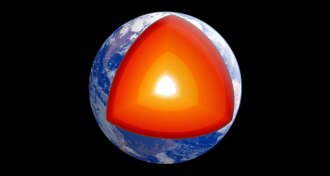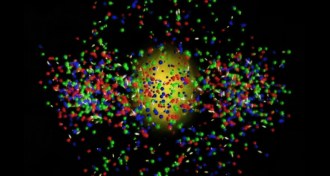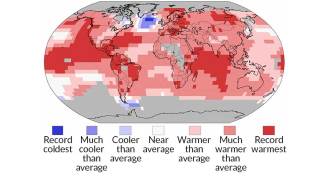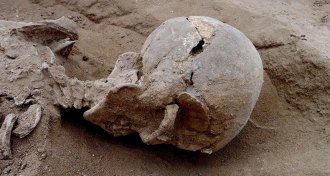All Stories
-
 Earth
EarthEarth’s inner secrets divulged in ‘Into the Heart of Our World’
A scientific journey to the center of the Earth includes just as much excitement and mystery as Jules Verne’s classic novel, a new book demonstrates.
-
 Health & Medicine
Health & MedicineRapid spread of Zika virus in the Americas raises alarm
After blazing through Brazil, a mosquito-borne virus called Zika, which may cause birth defects, is now poised to jump to the United States.
By Meghan Rosen -
 Animals
AnimalsTegu lizards warm up for mating season
The heat is on in tegu lizards during mating season, study suggests.
-
 Animals
AnimalsTegu lizards warm up for mating
Despite their cold-blooded reputation, tegu lizards boost their body heat while on the prowl for a mate, biologists report online January 22 in Science Advances.
-
 Astronomy
AstronomyMiddleweight black hole suspected near Milky Way’s center
A gas cloud in the center of the galaxy might be temporarily hosting the second most massive black hole known in the Milky Way.
-
 Health & Medicine
Health & MedicineNoisy toys mute conversations
Electronic toys put a damper on the conversations between parents and babies.
-
 Agriculture
AgricultureJust adding pollinators could boost small-farm yields
Adding pollinators could start closing gap in yields for small farms.
By Susan Milius -
 Physics
PhysicsEarly quark estimates not entirely realized
Decades of research have shed a little light on quarks, the mysterious building blocks of atoms.
-
 Climate
Climate2015 smashed heat records
Spurred by global warming and a “super El Niño,” 2015 now ranks as the warmest year since record-keeping began in 1880.
-
 Planetary Science
Planetary ScienceTime running out on comet lander
Philae’s days are numbered as temperatures on comet 67P drop and attempts to communicate with the lander fail.
-
 Animals
AnimalsNew tree frog genus discovered in India
Researchers unveil a newly identified tree frog genus from northeastern India that eats mom’s eggs.
-
 Anthropology
AnthropologyAttack 10,000 years ago is earliest known act of warfare
Human skeletons unearthed in East Africa show signs of a roughly 10,000-year-old lethal raid.
By Bruce Bower